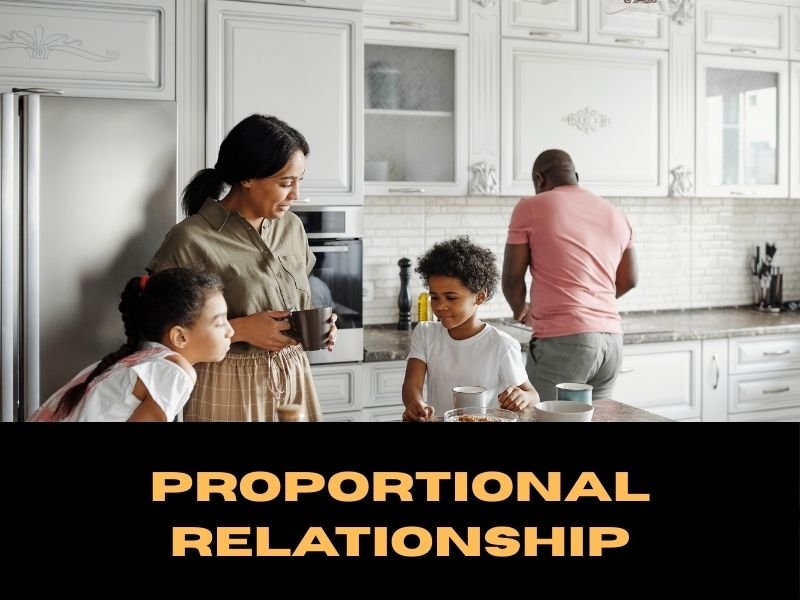
Dating couples usually set short-term goals for their relationships over a few days, weeks, or a month to strengthen their bond and make the relationship better, or to test if they are compatible. They usually don’t need big sacrifices or grand gestures, but they do create a rhythm of love, trust, and communication if both partners make an honest effort to make the relationship work. Unlike long-term goals, short-term goals will give dating couples quick wins that will help their relationship grow and give them more confidence. Long-term goals, like getting married or moving in together, don’t often do this.
Couples frequently drift in the fast-paced world of today because they believe that improving their relationship will happen in the distant future. However, by concentrating on short-term objectives, you generate ongoing chances to strengthen your bond and reaffirm your love for each other. Consider these objectives as little doses of emotional vitamins that maintain the relationship’s vitality, emotional fulfillment, and health. Let’s examine the most effective short-term objectives that any couple ought to attempt.
Why You Should Care More About Short-Term Goals
Most people in relationships think about big things they want to do together, like buying a mansion or getting married one day. But they fail to realize that real love is made in the present, through small, repeatable acts of kindness that make each other feel safe and seen. It’s important to have short-term relationship goals because they will make you show up all the time. They will help you show your love through actions, and not just words. Even something as simple as checking in with your partner every day can make them feel safe emotionally and like they are important to you.
Think of a couple that doesn’t plan things very often. They just go with the flow and hope that love “works out.” In contrast, another couple says, “Hey, let’s talk for ten minutes every night before bed and tell each other how we feel.” Within days, the second couple will naturally start to feel more connected. This type of action feels warm, purposeful, and grounding, like talking to your best friend after a long, hard day. Short-term goals help you remember why you’re together in the first place by giving you little wins that make you feel good.
Communicate Daily Intentions: Tiny Talks, Big Impact
Deciding to communicate purposefully each day is one of the easiest short-term relationship objectives. Just a few minutes a day to inquire about your partner’s true well-being or to show gratitude is all that is required; lengthy, dramatic conversations are not. Misunderstandings decline and emotional intimacy increases when communication becomes a daily routine rather than an isolated incident. It’s a wise investment because regular communication helps you resolve minor issues before they become major ones.
Think of talking to people as taking care of a car. You can avoid costly breakdowns later if you check your engine light often and do small tune-ups. The same goes for relationships. A daily check-in of five minutes: “How was your day?” “Anything on your mind?” is a way to keep your love bond strong. It will keep both partners on the same page and make the relationship feel safe and stable, which is the key to long-term happiness.
Show Your Partner Love in Small Ways
A lot of people think that big surprises or dramatic romantic gestures show that you love someone. Those times are beautiful, but they don’t happen often enough to keep a relationship going on their own. Consistency is what makes things work. When you check in on your partner, send them a nice text, or bring them coffee for no reason, you are telling them “I care about you” in small, steady ways. Over time, those small actions build emotional security.
It’s like watering a plant. You can’t just dump a gallon of water on it once a month and expect it to grow. You water it a little bit every day. Doing little things like hugging someone, giving them a sincere compliment, or sharing a funny meme can also help your relationship grow stronger and more vibrant. You don’t even have to try hard to make a long-term atmosphere of love if you set a short-term goal like “do one small act of care every day.”
Set Weekly Quality Time Goals Even with Busy Schedules

Life can and will get busy, work deadlines, family obligations, and personal stress can quickly take over romantic time. Couples should make it a goal to spend quality time together on purpose at least once a week. This could be a date night, a morning walk, or even making dinner together without any distractions. When you set aside time on purpose, you say, “This relationship is important, no matter how busy we get.” It will stop emotional distance from growing without anyone noticing.
Let’s be honest: sometimes “quality time” just means sitting on the couch in sweatpants, watching Netflix, and eating snacks. And to be honest? That’s okay. What matters is that you are both there and doing something together without phones or work or anything else getting in the way. Make a goal like “one hour of just us time every Saturday” and stick to it. Light some candles or make noodles together and just chill out, even if you are broke or tired. It feels good, it’s simple, and it keeps the relationship fun.
Here are 10 methods of how to set weekly quality time goals even with busy schedules
The 30-Minute Catch-Up Rule
Even if you’re both swamped, promise to spend at least 30 minutes each week just catching up, no phones, no distractions. Think of it like your “mini date night” at home: tea, snacks, and a good laugh before bed.
Schedule It Like a Meeting
Add “us time” to your calendar like it’s a business meeting you can’t miss. If you both treat it as non-negotiable, you’ll actually show up. It’s not cheesy, it’s smart relationship management!
Morning Coffee Ritual
Set a goal to have coffee or breakfast together twice a week. Even a quick chat before the day starts helps you reconnect. Picture it: messy hair, sleepy smiles, and your favorite mugs, pure relationship gold.
The Weekend Reset
Pick one weekend activity you both love, maybe hiking, binge-watching, or cooking, and stick to it. It becomes your weekly reset button after a long week. No matter how chaotic things get, that’s your time.
Text Check-In Goals
Make it a short-term goal to send at least one sweet or funny text daily. It could be a meme, an inside joke, or a random “miss you.” Tiny things keep the spark alive when time is tight.
Shared To-Do Adventures
Turn chores into bonding moments. Grocery runs? Fold laundry together while joking around. It’s not glamorous, but laughing over who folded the socks wrong still counts as quality time.
Tech-Free Nights
Set one night a week as your “no screens” night. Order pizza, play a board game, or just talk. You’ll be surprised how refreshing it feels to focus only on each other.
Date Night Jar
Write down fun mini-date ideas on paper slips, like “watch a sunset,” “cook pasta together,” or “karaoke night at home.” Each week, draw one randomly. Instant excitement and variety!
Shared Hobby Hour
Choose a hobby you both enjoy, such as gardening, painting, or learning a TikTok dance, and dedicate one hour weekly to it. It’s playful, goal-oriented, and strengthens your teamwork naturally.
Monthly Reflection Mini-Date
Once a month, grab coffee and talk about how your short-term goals for the relationship are going. Ask, “What worked this month?” or “What can we do better next week?” It keeps your bond growing with intention.
Set Short-term Trust Goals, Like Rebuilding or Strengthening the Bond.
It takes time to rebuild trust. You can do this by doing small, repeatable things that show you can be trusted. A short-term goal like “no lies, not even little ones” for the next 48 days or “tell me where I’m going and when I’ll be back” can help ease your worries about the relationship. These little habits of openness will help couples feel safe, especially if they had broken trust before. When both partners agree to be open for a short time, it lays the groundwork for a deeper, longer-lasting trust in each other.
Think about how you promised your partner that you would check in at least once when you were out late with friends. It sounds easy, but it means a lot to your partner. It sounds like you are saying, “I care about how you feel and want you to be safe.” Little promises that you keep over and over are like bricks. They will make a strong emotional home where you can both relax and stop overthinking. A short-term trust goal shows that actions speak louder than words.
To Share Feelings Without Being Judged
Because they worry about disagreements or being misinterpreted, many couples steer clear of emotional conversations. The relationship can be completely changed by establishing a short-term objective, such as “once a week, let’s check in emotionally without judging each other.” Each partner shares their current feelings, such as happiness, stress, insecurity, or pride, during these check-ins, and the other partner just listens. It’s more important to listen to one another and validate feelings than it is to correct or argue. Deeper intimacy and fewer pent-up resentments are the results of this type of emotional safety.
Think of this as a weekly heart-to-heart where you both let your guard down and speak your mind. It could be on a Sunday night with some tea or while you scroll in bed. One person could say, “I felt ignored this week when you were always on your phone,” and the other could say, “I didn’t know that.” Thanks for letting me know. No drama, no yelling, just good and respectful conversation. Both partners may feel much closer and more emotionally protected if this is done, even for four weeks in a row.
Help Each Other Reach Their Own Goals (As a Short-Term Couple Goal)
You could set a goal to gently remind your girlfriend to study for a certification exam and even quiz her once a week. You could also cook a new healthy meal together as a small goal for the week if your boyfriend wants to eat better. You feel like you are more than just lovers; you feel like life partners. Sending each other a “you have got this” message during the week can make both of you feel like you have someone who cares and understands you.
A healthy relationship doesn’t just focus on the “us”; it also lets each person grow on their own. One important short-term goal for your relationship is to help your partner with their projects or dreams for the next few weeks. She might be trying to read more books, or he might be trying to work out three times a week. Your partner feels valued as a person and as your lover when you show interest, ask about progress, or even join in.
Get Better At Dealing With Small Fights
Like a timeout in sports, even professional teams take breaks to rest and get back on track. Picture this: you are fighting, and instead of storming off or saying something mean, one of you says, “Time out, let’s breathe and talk in ten.” That’s grown-up behavior. How you fight is what breaks up most relationships, not the fights themselves. After a few weeks of practicing peaceful conflict, it becomes second nature. Your arguments become more respectful and even helpful.
Disagreements are a natural part of any relationship. The objective is to manage arguments in a healthier manner rather than to avoid them. Agreeing to take a moment during a disagreement rather than shouting or using hurtful language is a great short-term goal for couples. You could establish a rule for the next two weeks that says, “If either of us gets too upset, we’ll pause for ten minutes and come back calmly.” This straightforward pledge helps both partners develop better conflict resolution techniques and lessens the harm caused during arguments.
Congratulate, Acknowledge, and Express Gratitude More
After a few years, a guy told me that his relationship felt chilly. It seemed as though they were merely roommates, even though they continued to live together and share a bed. He made the decision one day to thank his girlfriend once more for her hard work at her job, for cleaning the kitchen, and for being understanding when he was under pressure. She initially chuckled because it seemed arbitrary. However, a week later, her smile changed. “I forgot how good it feels to be seen by you,” she even said. Everything changed as a result. Sometimes the spark is rekindled by verbal expressions of gratitude rather than flowers or trips.
Developing an appreciation habit is one of the most straightforward yet effective short-term relationship objectives. You actively seek out opportunities to express gratitude to your partner, even for the small things, rather than taking each other for granted. Although it may seem insignificant, saying something like “thank you for making dinner” or “you looked really good today” fosters love in ways that silence cannot. For the next two weeks, make it your mission to express gratitude or at least one sincere compliment each day.
Shared Adventure Goals: Plan Something New Together
Picture you and your partner trying to make sushi at home and failing miserably, but laughing the whole time. Or going on a spontaneous road trip and getting lost together while singing in the car. Those memories turn into inside jokes and things that hold people together. Couples can keep their relationship alive and fun by planning a little adventure together now and then, even if it’s just once a month. You look forward to something, and you realize that you are still growing together, not just next to each other.
Routine brings comfort, but it can also make a relationship feel stale if nothing new ever happens. A fun short-term goal is to plan one new experience together, something you’ve never done before, within the next two or three weeks. It doesn’t have to be expensive. It could be trying a new café, taking a dance class, visiting a nearby town, or even cooking a recipe neither of you has tried. New experiences trigger excitement and curiosity, allowing you to see each other in a fresh light.
Reflect on Progress as a Couple

You could make it a little ritual. For example, on the last Friday of every month, you could get your favorite dessert or drink and think about all the good things that have happened in your relationship. Talk about the good times, laugh about the times you didn’t reach your goals, and even write down one thing you loved about each other that month. It’s like giving your relationship a report card, but a nice one. You start to feel more like a team when you celebrate even the smallest successes. This gives you the motivation to keep growing together.
A lot of couples make small goals but don’t stop to think about how far they’ve come. One nice short-term goal is to sit down together once a month and talk about how far you’ve come. What did we really accomplish this month? Did we talk to each other more? Were we more loving? Did we gain more trust in each other? This reflection doesn’t just inspire you; it also makes you both feel proud and closer. This is a time to celebrate, not to judge.
Conclusion
Short-term goals for relationships may seem small, but they can have a big effect. Couples build a strong base of love and understanding by choosing realistic, daily or weekly actions, such as talking more, appreciating each other, resolving conflicts better, and trying new things together. You have to put in short-term effort on purpose to be happy in the long run.
You two don’t have to wait for a “big moment” to make your relationship better. Set a small goal for today, like complimenting someone, checking in with them, or making plans for a fun weekend activity. If you keep these small promises, they will change your relationship from the inside out in a gentle, real, and beautiful way.







